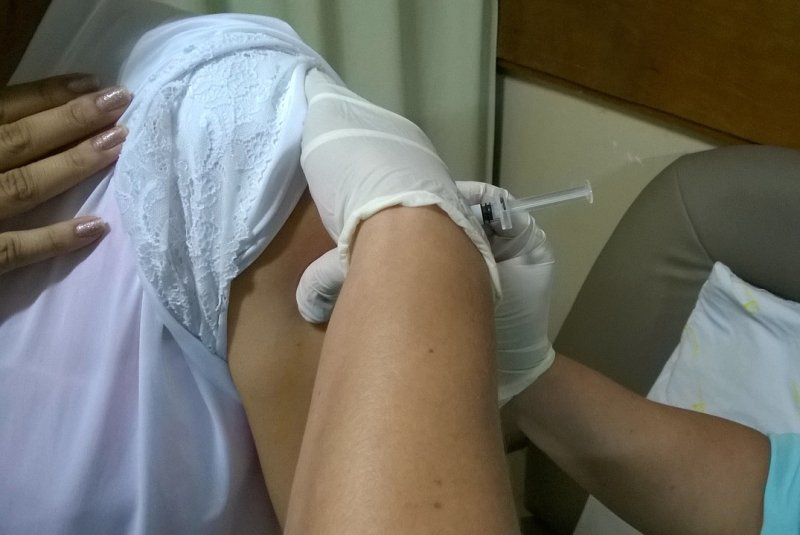A new study finds that the flu vaccine may reduce a person's risk for severe disease from COVID-19. Photo by marcolohpsoares/
Pixabay
Oct. 28 (UPI) -- People who received the flu vaccine in the year before testing positive for COVID-19 are nearly 2 1/2 times less likely to be hospitalized with a severe form of the disease than those who were not vaccinated, an analysis published Wednesday by the Journal of the American Board of Family Medicine found.
In addition, those vaccinated against the flu within a year of being diagnosed with COVID-19 were more than three times less likely to be admitted to an intensive care unit because of the new coronavirus, according to researchers at the University of Florida.
The flu vaccine does not, however, offer protection against COVID-19, the researchers said.
Instead, it may help prevent progression to severe disease from the virus by "priming" of the immune system against an invading virus, no matter which one, they said.
"We think this gives people a huge incentive to get a vaccination," study co-author Arch G. Mainous III said in a statement.
"It's a double-win in many ways because the vaccination is, of course, helping protect you from influenza, as well," said Mainous, a professor in the Department of Health Services Research, Management and Policy at the University of Florida's College of Public Health and Health Professions.
Nothing in the study, however, implies COVID-19 is identical to flu. The two are caused by different viruses, and COVID-19 is more lethal than influenza, making it a far more serious public health concern, Mainous and his colleagues said.
Public health experts, including Dr. Anthony Fauci, director of the National Institute for Allergy and Infectious Diseases, have predicted that the approaching winter season will see a twin pandemic of the seasonal flu and COVID-19 in the United States, further stressing the nation's overburdened health system.
Fauci and others have urged people in the United States to get vaccinated against the flu because it will at least reduce their risk for getting sickened with the seasonal virus as the pandemic rages on.
For this study, Mainous and his team examined anonymized information for 2,000 patients at University of Florida Health who tested positive for COVID-19 between March and August.
All of the data, including COVID-19 tests, hospitalizations, ICU admissions and influenza vaccination status, came from the patients' electronic health records, the researchers said.
Of these patients, 214 -- or about 11% -- had received the flu vaccine within a year of being diagnosed with the new coronavirus, they said.
More investigation is needed to confirm any links between flu vaccination and prevention of COVID-19, according to the researchers. However, the findings potentially have important implications for protecting people from a disease with few proven effective treatments, they said.
The protective effect they spotted appears to be present even in the absence of actual flu infection, although why vaccine might benefit COVID-19 patients remains unclear, they said.
In addition to boosting the body's immune system, another theory is that components added to the flu vaccine to make it more effective -- called adjuncts -- bolster immune response in general, according to the researchers.
Previous research suggests that vaccines with specific adjuncts might have offered protection to those infected with severe acute respiratory syndrome, or SARS, an earlier, less-deadly coronavirus infection first identified in 2003, study co-author Dr. Ming-Jim Yang said.
The researchers plan to look at whether other types of vaccinations offer the same benefit, particularly the pneumonia vaccine, which typically is administered to older patients, they said.
"One of the biggest problems we have with any preventive measure is getting people to do it," Mainous said. "So, maybe this would be a pretty good push for people to go out and get their flu shot."















